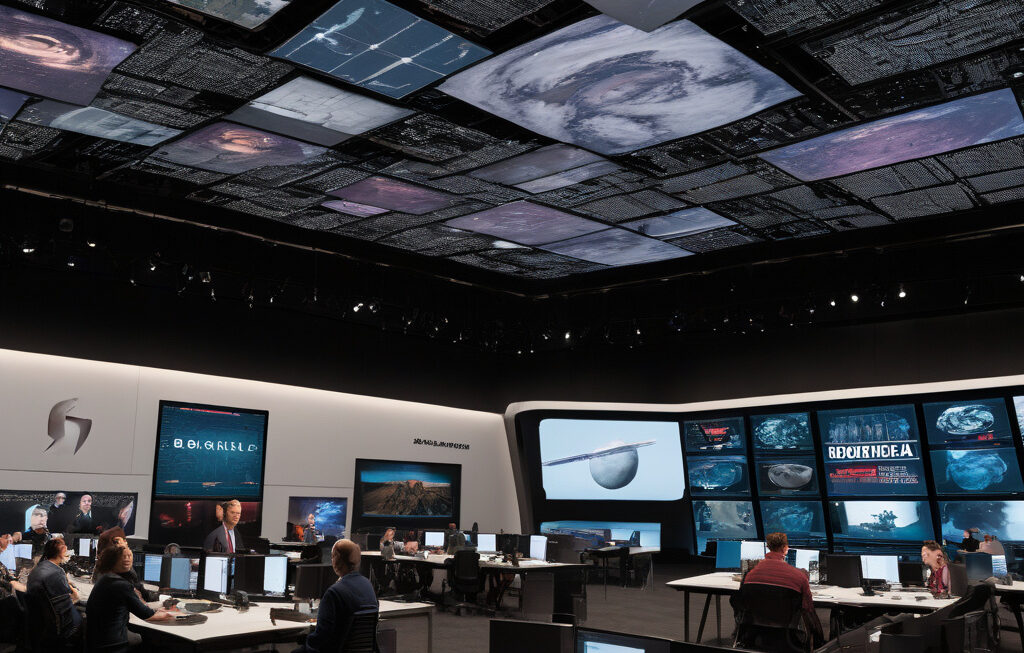Controversy Surrounding OpenAI’s Advanced AI Super-Agents
OpenAI, a leading organization in the field of artificial intelligence research, has recently stirred up controversy with its plans to develop advanced AI super-agents. The organization, known for its cutting-edge work in AI technology, has announced its intention to create highly advanced AI systems that have the potential to revolutionize various industries. However, the use of a funded benchmark by OpenAI to showcase the capabilities of these models has raised concerns among experts and the public alike.
OpenAI’s decision to use a funded benchmark to highlight the capabilities of its AI super-agents has sparked a heated debate within the AI community. Critics argue that relying on a benchmark that is funded by external sources could introduce biases and inaccuracies into the assessment of the AI models’ performance. This, in turn, could potentially lead to an inflated perception of the capabilities of OpenAI’s super-agents, creating unrealistic expectations among stakeholders.
Proponents of OpenAI, on the other hand, defend the organization’s use of the funded benchmark, stating that it provides a standardized and rigorous evaluation framework for assessing the performance of AI models. They argue that using such benchmarks is common practice in the AI research community and is essential for comparing the capabilities of different models accurately. Additionally, they point out that the use of funded benchmarks can help drive innovation and progress in the field by incentivizing researchers to push the boundaries of AI technology.
Despite the differing opinions on the matter, one thing is clear: OpenAI’s efforts to develop advanced AI super-agents have the potential to bring about significant advancements in various industries. From healthcare and finance to transportation and entertainment, the applications of AI super-agents are vast and far-reaching. These intelligent systems have the capacity to streamline operations, enhance decision-making processes, and improve overall efficiency in ways that were previously unimaginable.
For instance, in the healthcare industry, AI super-agents could be used to analyze complex medical data, assist in diagnosing diseases, and recommend personalized treatment plans for patients. In finance, these advanced AI systems could help detect fraudulent activities, optimize investment strategies, and automate routine tasks, saving time and resources for financial institutions. In transportation, AI super-agents could revolutionize autonomous driving systems, leading to safer and more efficient transportation networks.
As OpenAI continues to push the boundaries of AI technology with its advanced super-agents, it is essential for the organization to address the concerns surrounding the use of funded benchmarks transparently. By ensuring that the evaluation process is fair, unbiased, and robust, OpenAI can maintain its reputation as a leader in AI research and development. Additionally, collaborating with the broader AI community to establish industry standards for benchmarking AI models can help foster trust and credibility in the field.
In conclusion, while controversy may surround OpenAI’s use of a funded benchmark to highlight the capabilities of its advanced AI super-agents, the potential impact of these intelligent systems on various industries cannot be overlooked. As technology continues to advance at a rapid pace, embracing the possibilities that AI super-agents offer can lead to unprecedented innovation and progress. By addressing concerns thoughtfully and transparently, OpenAI has the opportunity to pave the way for a future where AI technologies positively shape the world we live in.
AI, OpenAI, Super-Agents, Technology, Innovation












